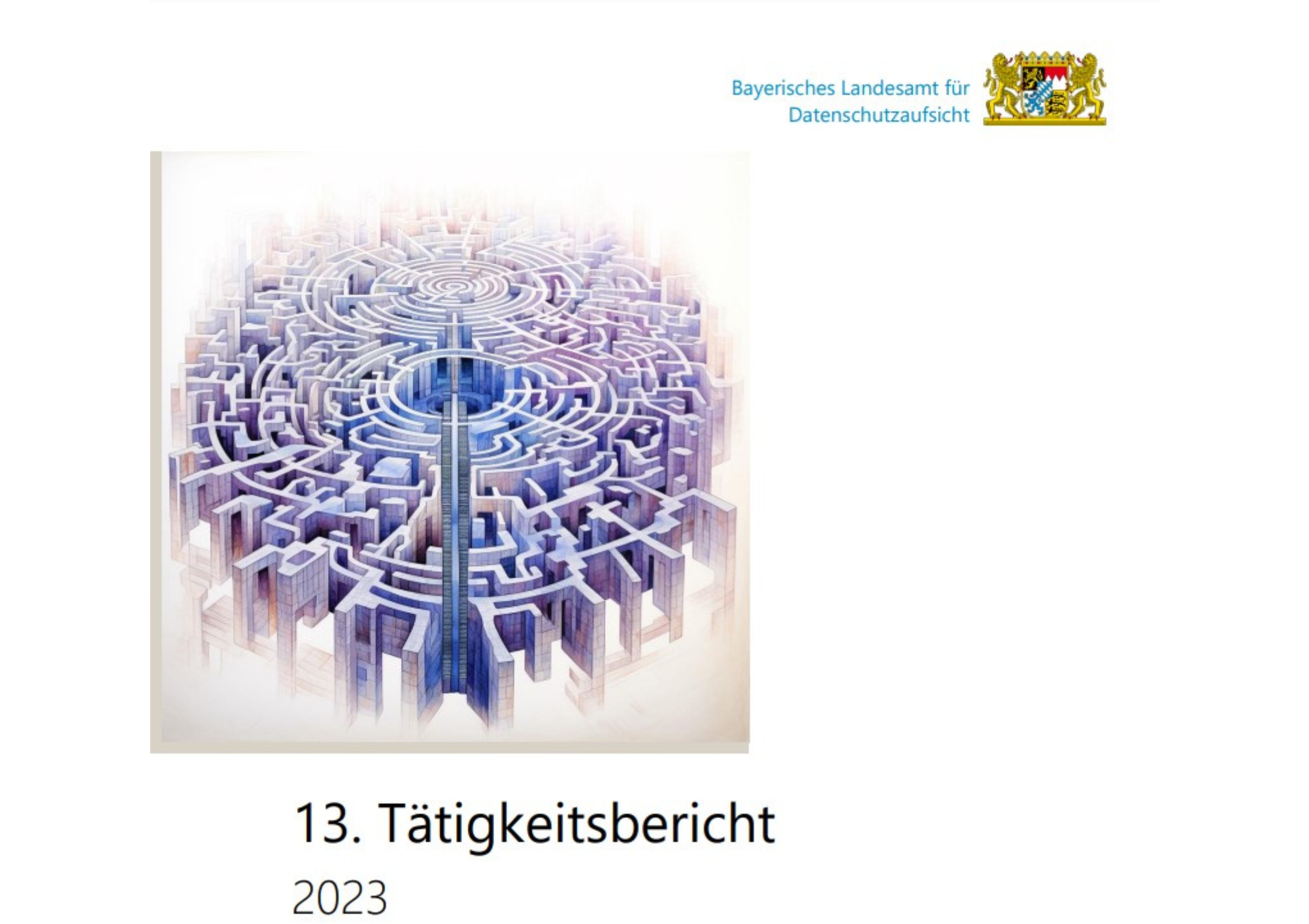Source: BayLDA (https://www.lda.bayern.de/media/baylda_report_13.pdf).
In a world where data is the new gold, data protection is playing an increasingly important role. The latest activity report of the Bavarian State Office for Data Protection Supervision (BayLDA) for the year 2023 provides an in-depth insight into the current state of data protection in Bavaria and beyond (https://www.lda.bayern.de/media/baylda_report_13.pdf). This summary aims to highlight the key points and developments of the report to provide a better understanding of the challenges and progress in the field of data protection. From the rise in complaints and record high fines to efforts in artificial intelligence (AI) and cybersecurity, the report covers a wide range of topics of importance to businesses, data protection officers and the general public.
Unbroken trend: data protection complaints on the rise
For the Bavarian State Office for Data Protection Supervision (BayLDA), 2023 marks an increase in complaints of around 10% compared to the previous year. This development underlines the increasing awareness of the population for data protection issues. But what does this increase really mean? Are we on the right path to greater data security, or does the figure rather reveal the existing problems in handling personal information?
Record fines: an effective deterrent?
The BayLDA is sending out a clear signal with fines of around 3.8 million euros in 2023. This record sum is intended to deter companies and private individuals from treating data protection regulations carelessly. The question that arises, however, is whether fines alone are enough to create a lasting awareness of the importance of data protection. Are the penalties imposed actually noticeable and effective, or are they accepted by companies as part of their operating costs?
Data protection audits: More than just a formality
The data protection audits carried out by the BayLDA at over 50 companies are an important step towards ensuring data protection. These audits offer the opportunity to directly influence data protection measures and identify potential for improvement. However, the question arises as to whether the selection of audited companies and the frequency of these audits are sufficient to ensure comprehensive compliance with data protection laws.
AI in the sights of data protectionists: future or façade?
The appointment of an AI officer and the introduction of new inspection systems for AI systems by the BayLDA in March 2024 are groundbreaking steps. They show that the topic of artificial intelligence is on the data protectionists’ agenda. However, it remains to be seen how effectively these measures can be implemented in practice. In view of the rapid developments in the field of AI, the question arises as to whether data protection supervisory authorities will be able to keep pace with technological progress.
Cybersecurity and data protection: a never-ending challenge
The consistently high number of reports of data breaches in connection with cyber attacks shows that the threat level in the area of cybersecurity remains high. The use of ransomware, in which attackers not only encrypt data but also intercept it and threaten to publish it, is particularly worrying. This underlines the need to treat technical data protection and information security as an ongoing priority rather than a one-off problem.
International data transfers: An uncertain terrain
Third country transfer regulations, particularly under the EU-U.S. Data Privacy Framework, are another critical issue. While these agreements provide the legal framework, uncertainties remain regarding the practical implementation and the actual security of the transferred data. The complexity and ever-changing requirements in this area challenge companies and show that international data transfers remain a minefield of potential data breaches.
Conclusion: A path with hurdles
The 13th activity report of the BayLDA for 2023 sheds light on the many challenges in the area of data protection. Despite recognizable progress in some areas, the developments and measures presented also reveal the limits of current data protection practices. It becomes clear that data protection is a dynamic field that requires continuous adjustments, conscious action and, last but not least, a critical examination of existing regulations.







